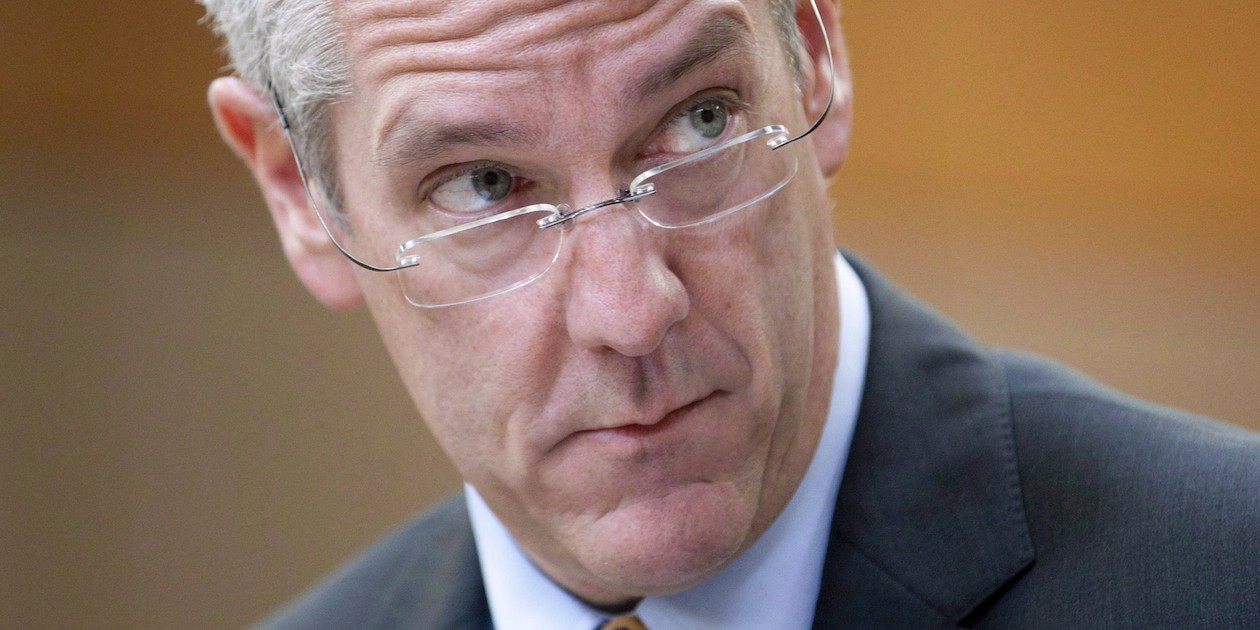CRTC chairman Jean-Pierre Blais is preaching patience in the new regulatory environment.
“On the surface it may look like everything’s changing overnight,” he said during a Nov. 6 presentation before the Vancouver Board of Trade. “And there may very well be some important shifts occurring. But the CRTC needs to examine the whole system, focus on real evidence, consider trend lines and act at a measured pace.”
Blais told the group there is no benefit to being a “reckless” regulator in the face of a rapidly shifting broadcast landscape. “If this is acting like a dinosaur, I will wear that label proudly,” he said.
Addressing the rise of streaming services like Netflix and recent ventures from both Rogers/Shaw (shomi) and Bell (Project Latte) and their perceived impact on the broadcast system, he said the majority of Canadians (60%) currently do not stream programming.
Canadians currently consume an estimated 28 hours of traditional TV a week, compared with 1.9 hours of viewing to online video services, he told the organization.
According to the most recent CRTC data, subscriptions to cable, satellite and IPTV fell by 7,600 – or 0.1% – in the past year, compared to a 6% reduction in residential telephone lines. At the same time, he said, these so called “cord-cutters” are actually more connected through wired and wireless broadband.
Blais dismissed continued characterizations of the federal regulator as old and stodgy, noting the majority of CRTC employees are young and tech-savvy, with a “critical mass” under the age of 35.
He also defended his testy exchanges with Google and Netflix during September’s “Let’s Talk TV” hearings, which stemmed from their reluctance to provide hard data to back up several claims made during their presentations.
After the companies subsequently refused to provide the requested information, citing privacy concerns, the CRTC struck their presentations from the hearings’ official record.
Blais said the stakes for the broadcast system are simply too great to make decisions based on anecdotal evidence about how teenagers are using their smartphone or gaming system, or “one-sided blog arguments.”
“In an age of digital communications, and given the importance of Canada’s communication system to our collective economic and social welfare, public policy cannot be based solely on unsubstantiated statements,” he said.
“This is not about regulating them or not, as some uninformed casual observers would have you believe. This is about the integrity of an evidence-based proceeding. Every day, we receive and protect highly confidential and competitively sensitive information.”
The CRTC announced its first decision from the “Let’s Talk TV” hearings last week, but Blais said it would likely be some time before any of the key issues from the proceedings – such as simultaneous substitution and pick-and-pay – are addressed.
“There are numerous interrelated issues that require a few more months of thoughtful consideration,” he said. “But there is one thing I can share: ‘Regulating’ Netflix is the least of our concerns. Whether we choose to attack these disruptive services or learn from their success will be our regulatory decision to make and ours alone.”











